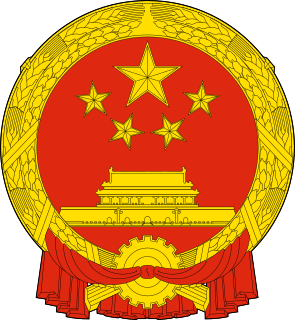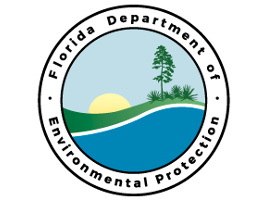Related Research Articles

Environmental law is a collective term encompassing aspects of the law that provide protection to the environment. A related but distinct set of regulatory regimes, now strongly influenced by environmental legal principles, focus on the management of specific natural resources, such as forests, minerals, or fisheries. Other areas, such as environmental impact assessment, may not fit neatly into either category, but are nonetheless important components of environmental law.

A polychlorinated biphenyl (PCB) is an organic chlorine compound with the formula C12H10−xClx. Polychlorinated biphenyls were once widely deployed as dielectric and coolant fluids in electrical apparatus, carbonless copy paper and in heat transfer fluids.

The Environmental Protection Agency (EPA) is an independent executive agency of the United States federal government tasked with environmental protection matters. President Richard Nixon proposed the establishment of EPA on July 9, 1970; it began operation on December 2, 1970, after Nixon signed an executive order. The order establishing the EPA was ratified by committee hearings in the House and Senate. The agency is led by its administrator, who is appointed by the president and approved by the Senate. The current administrator is former deputy administrator Andrew R. Wheeler, who had been acting administrator since July 2018. The EPA is not a Cabinet department, but the administrator is normally given cabinet rank.
Economic interventionism, sometimes also called economic statism and state interventionism, is an economic policy perspective favoring government intervention in the market process to correct market failures and promote the general welfare of the people. An economic intervention is an action taken by a government or international institution in a market economy in an effort to impact the economy beyond the basic regulation of fraud and enforcement of contracts and provision of public goods. Economic intervention can be aimed at a variety of political or economic objectives, such as promoting economic growth, increasing employment, raising wages, raising or reducing prices, promoting income equality, managing the money supply and interest rates, increasing profits, or addressing market failures.

The Byron Nuclear Generating Station is a nuclear power plant located in Ogle County, Illinois, 2 miles (3.2 km) east of the Rock River. The reactor buildings were constructed by Commonwealth Edison and house two Westinghouse Four-Loop pressurized water reactors, Unit 1 and Unit 2, which first began operation in September 1985 and August 1987 respectively. The plant is currently owned and operated by Commonwealth Edison's parent company, Exelon Corporation.

The New York State Department of Environmental Conservation is a department of New York state government. The department guides and regulates the conservation, improvement, and protection of New York's natural resources; manages Forest Preserve lands in the Adirondack and Catskill parks, state forest lands, and wildlife management areas; regulates sport fishing, hunting and trapping; and enforces the state's environmental laws and regulations. Its regulations are compiled in Title 6 of the New York Codes, Rules and Regulations. It was founded in 1970, replacing the Conservation Department. and is headed by Basil Seggos.

The Illinois Environmental Protection Agency of the state of Illinois is the primary body concerned with the protection of the environment for the state. The Illinois EPA's mission is "to safeguard environmental quality, consistent with the social and economic needs of the State, so as to protect health, welfare, property and the quality of life."

Chemetco was formerly one of the largest United States refiners of copper from recycled or residual sources.

The Ministry of Ecology and Environment, formerly the Ministry of Environmental Protection of the People's Republic of China (MEP), and prior to 2008 known as the State Environmental Protection Administration (SEPA), is a department of the State Council of the People's Republic of China. It superseded the MEP in 2018.
The Karnataka State Pollution Control Board (KSPCB) is a legal entity entrusted for control of pollution in the Indian State of Karnataka. The Board regulates air, water and environmental pollution.
Environmental policy in China is set by the National People's Congress and managed by the Ministry of Environmental Protection of the People's Republic of China. The Center for American Progress has described China's environmental policy as similar to that of the United States before 1970. That is, the central government issues fairly strict regulations, but the actual monitoring and enforcement are largely undertaken by local governments that have a greater interest in economic growth. The environmental work of non-governmental forces, such as lawyers, journalists, and non-governmental organizations, is limited by government regulations. Under the Ministry of Environmental Protection of the People's Republic of China, the Department of Policies, Laws, and Regulations is in charge of establishing and strengthening basic laws and policies such as environmental laws, administrative policies and economical regulations. It is also responsible for the development of national environmental protection policy and macro strategy.

The Florida Department of Environmental Protection (FDEP) is the Florida government agency charged with environmental protection. It is under the nominal control of the governor.

The Clean Air Act of 1963 is a United States federal law designed to control air pollution on a national level. It is one of the United States' first and most influential modern environmental laws, and one of the most comprehensive air quality laws in the world. As with many other major U.S. federal environmental statutes, it is administered by the U.S. Environmental Protection Agency (EPA), in coordination with state, local, and tribal governments. Its implementing regulations are codified at 40 C.F.R. Sub-chapter C, Parts 50–97.

The California State Water Resources Control Board (SWRCB) is one of six branches of the California Environmental Protection Agency.

Microbeads are manufactured solid plastic particles of less than one millimeter in their largest dimension. They are most frequently made of polyethylene but can be of other petrochemical plastics such as polypropylene and polystyrene. They are used in exfoliating personal care products, toothpastes and in biomedical and health-science research.

Nonpoint source (NPS) water pollution regulations are environmental regulations that restrict or limit water pollution from diffuse or nonpoint effluent sources such as polluted runoff from agricultural areas in a river catchments or wind-borne debris blowing out to sea. In the United States, governments have taken a number of legal and regulatory approaches to controlling NPS effluent. Nonpoint water pollution sources include, for example, leakage from underground storage tanks, storm water runoff, atmospheric deposition of contaminants, and golf course, agricultural, and forestry runoff. Nonpoint sources are the most significant single source of water pollution in the United States, accounting for almost half of all water pollution, and agricultural runoff is the single largest source of nonpoint source water pollution. This water pollution has a number of detrimental effects on human health and the environment. Unlike point source pollution, nonpoint source pollution arises from numerous and diverse sources, making identification, monitoring, and regulation more complex.

The Telangana Pollution Control Board is a body of the Department of Health and Family Welfare, Government of the State of Telangana, India. The board is charged with enforcing laws related to environmental protection.

Between 1947 and 1977, General Electric polluted the Hudson River by discharging polychlorinated biphenyls (PCBs), causing a range of harmful effects to wildlife and people who eat fish from the river or drink the water. Other kinds of pollution, including mercury contamination and cities discharging untreated sewage, have also caused problems in the river.
Water in Arkansas is an important issue encompassing the conservation, protection, management, distribution and use of the water resource in the state. Arkansas contains a mixture of groundwater and surface water, with a variety of state and federal agencies responsible for the regulation of the water resource. In accordance with agency rules, state, and federal law, the state's water treatment facilities utilize engineering, chemistry, science and technology to treat raw water from the environment to potable water standards and distribute it through water mains to homes, farms, business and industrial customers. Following use, wastewater is collected in collection and conveyance systems, decentralized sewer systems or septic tanks and treated in accordance with regulations at publicly owned treatment works (POTWs) before being discharged to the environment.
Indian environmental law concerns the law and policy of India concerning the protection of the environment, measures taken to reverse climate change and achieve a zero carbon economy.
References
- ↑ "State of Illinois Proclamation". Pollution Control Board. State of Illinois. June 12, 2020. Retrieved February 1, 2021.
- ↑ "Welcome to the Illinois Pollution Control Board". Pollution Control Board. State of Illinois. 2020. Retrieved February 1, 2021.